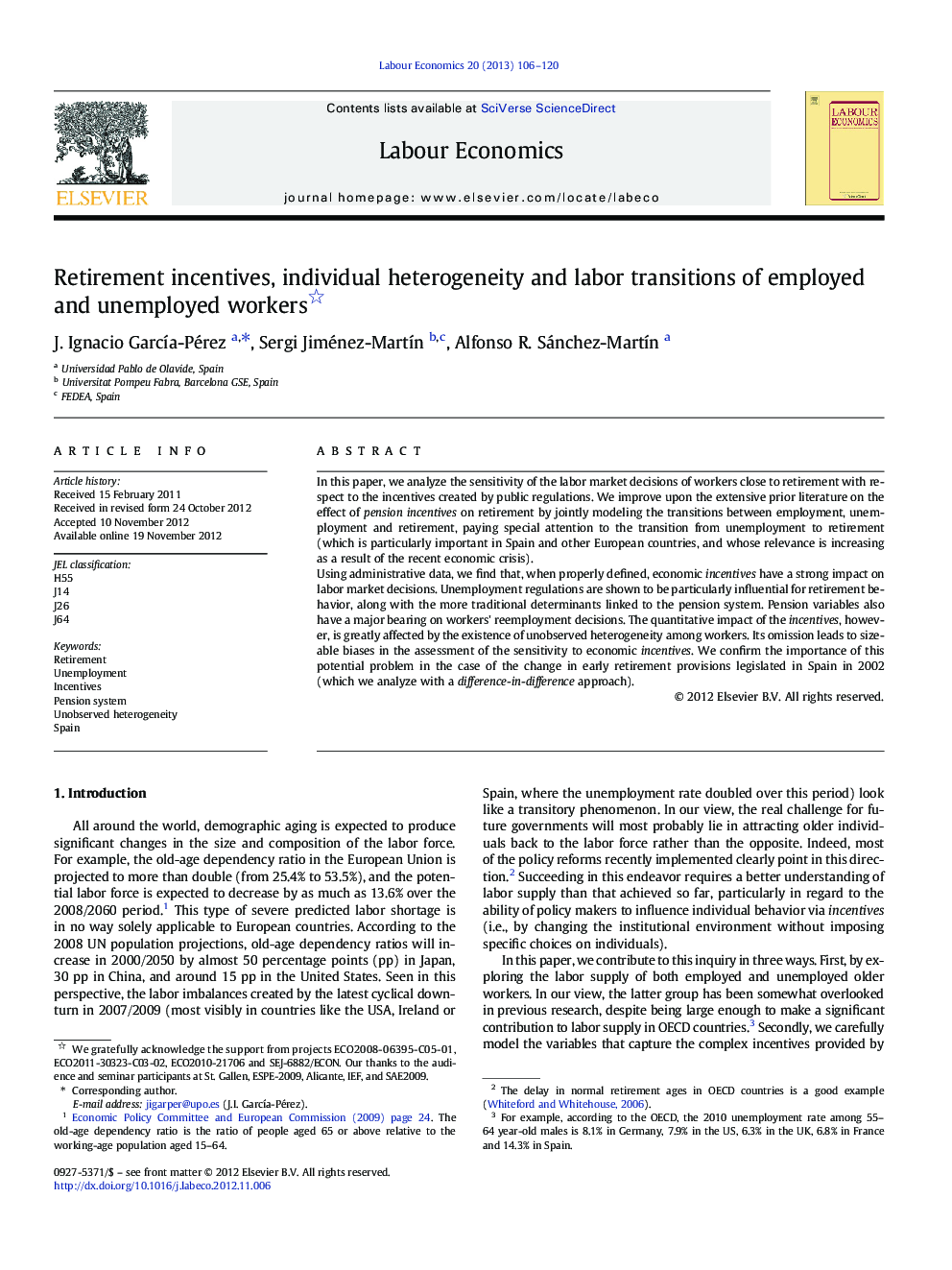| Article ID | Journal | Published Year | Pages | File Type |
|---|---|---|---|---|
| 971516 | Labour Economics | 2013 | 15 Pages |
In this paper, we analyze the sensitivity of the labor market decisions of workers close to retirement with respect to the incentives created by public regulations. We improve upon the extensive prior literature on the effect of pension incentives on retirement by jointly modeling the transitions between employment, unemployment and retirement, paying special attention to the transition from unemployment to retirement (which is particularly important in Spain and other European countries, and whose relevance is increasing as a result of the recent economic crisis).Using administrative data, we find that, when properly defined, economic incentives have a strong impact on labor market decisions. Unemployment regulations are shown to be particularly influential for retirement behavior, along with the more traditional determinants linked to the pension system. Pension variables also have a major bearing on workers' reemployment decisions. The quantitative impact of the incentives, however, is greatly affected by the existence of unobserved heterogeneity among workers. Its omission leads to sizeable biases in the assessment of the sensitivity to economic incentives. We confirm the importance of this potential problem in the case of the change in early retirement provisions legislated in Spain in 2002 (which we analyze with a difference-in-difference approach).
